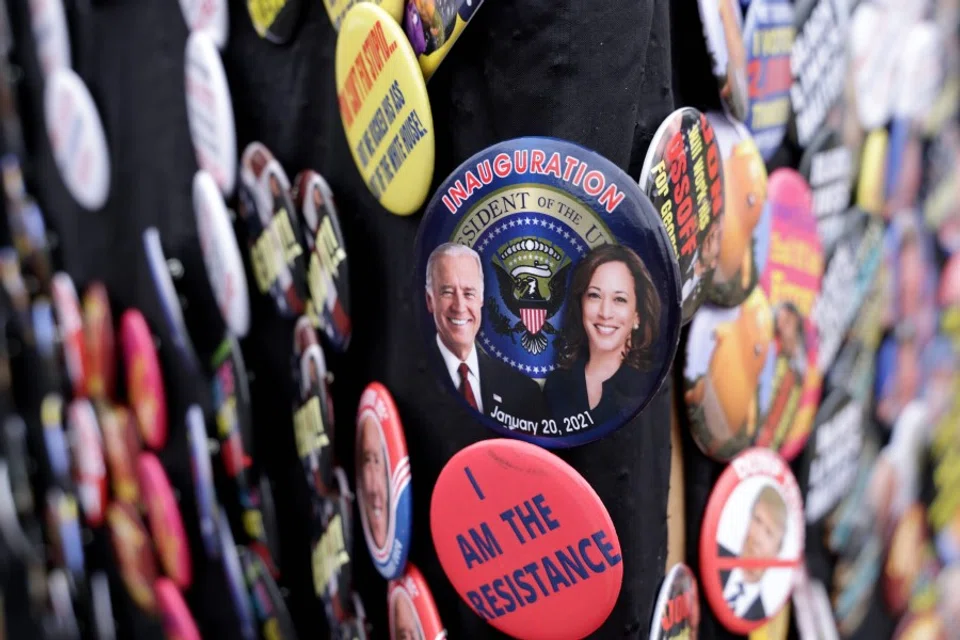Japanese academic: The Chinese and Japanese differ in their perceptions of Biden's China policy
With US President-elect Joe Biden poised to take office in a week, Japanese academic Shin Kawashima compares how China and Japan view the incoming administration, and how their differing views may impact on foreign relations and geopolitics.

I recently had the opportunity to attend an online conference between China and Japan. Much of the conversation centred on the future relationship between China and the US, and above all, the China policy of the new Biden administration. Interestingly enough, relatively clear contrasts emerged as the two countries discussed the issue. Simply put, it is the view of the Chinese side that the China policy of the Obama administration will largely be restored under the Biden administration, whereas the Japanese side believes that the Biden administration will continue the Trump administration's policies toward China.
The context for these differences is likely found in the expectations of the Biden administration in Japan and China respectively. Yet, both countries have some grounds for their respective views. The Chinese side engaged in direct discussions with President-elect Biden when he served as vice president in the Obama administration. Since a significant number of diplomatic staff members from the Obama administration have joined the Biden administration, China senses a continuation of the Obama administration. The Chinese also assume that the Biden administration is anti-Trump, that is, that the new administration is likely to move to disavow the diplomacy of the Trump administration. In addition, Team Biden has raised the point that China is not an enemy but a competitor. Since they have also identified specific points of cooperation, such as the issue of climate change, it seems that China has some grounds for its interpretation that there will be an overlap between the Biden administration and the Obama administration.
Certainly, many members of Team Biden are thought to be receptive to a new type of great power relations, but Japan has noted that they have expressed views over several years now that seem to suggest a fairly harsh attitude toward China.

On the other hand, the Japanese side does not perceive the conflict between the US and China as a phenomenon that is characteristic of the Trump administration, but as a structural issue. In short, the view is that it is a non-partisan, systemic, and long-term issue. Naturally, the issue of climate change and other entries on the Biden administration's list of policy priorities require cooperation with China. However, it is the perception of the Japanese side that these priorities will not necessarily roll back the issues of military security, cutting-edge dual-use technologies, or human rights. Certainly, many members of Team Biden are thought to be receptive to a new type of great power relations, but Japan has noted that they have expressed views over several years now that seem to suggest a fairly harsh attitude toward China. In short, their views have changed substantially in the four years since the Obama administration, and Japan does not believe that they will adopt the same policy toward China as in the days of the Obama administration. The Japanese perspective differs from that of China.
Underlying these differences in Japanese and Chinese perceptions of the US, there is a lack of clarity on the Biden administration's blueprint for a China policy.
There are also dissenting views in both China and Japan. The view in China is that confrontation between an emerging China and the US is unavoidable and that this will continue under the Biden administration. Japan, on the other hand, is worried that the Biden administration will lose interest in the Indo-Pacific, or adopt a conciliatory approach to China to avoid direct confrontation. But, on the whole, the differences between Japan and China are as described above.

Underlying these differences in Japanese and Chinese perceptions of the US, there is a lack of clarity on the Biden administration's blueprint for a China policy. In November 2020, Xi Jinping sent two messages to Biden. The first message was a congratulatory one where he asked for reassurance of the new type of great power relations. The second message contained proposals for affirmative initiatives with regard to the climate change issue at the G20. At present, there has been no clear response from the US side. The Biden administration is focusing on domestic Covid-19 measures and economic recovery. Meanwhile, diplomatic policies appear to be focused on remedial measures. If the formulation of a policy toward China and the policy agenda for the Indo-Pacific is delayed, China may not only try to set the agenda ahead of the US, but may also intensify various confrontations in the East Asia region.



![[Photos] Fact versus fiction: The portrayal of WWII anti-Japanese martyrs in Taiwan](https://cassette.sphdigital.com.sg/image/thinkchina/3494f8bd481870f7c65b881fd21a3fd733f573f23232376e39c532a2c7593cbc)

